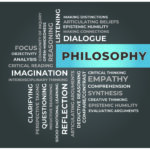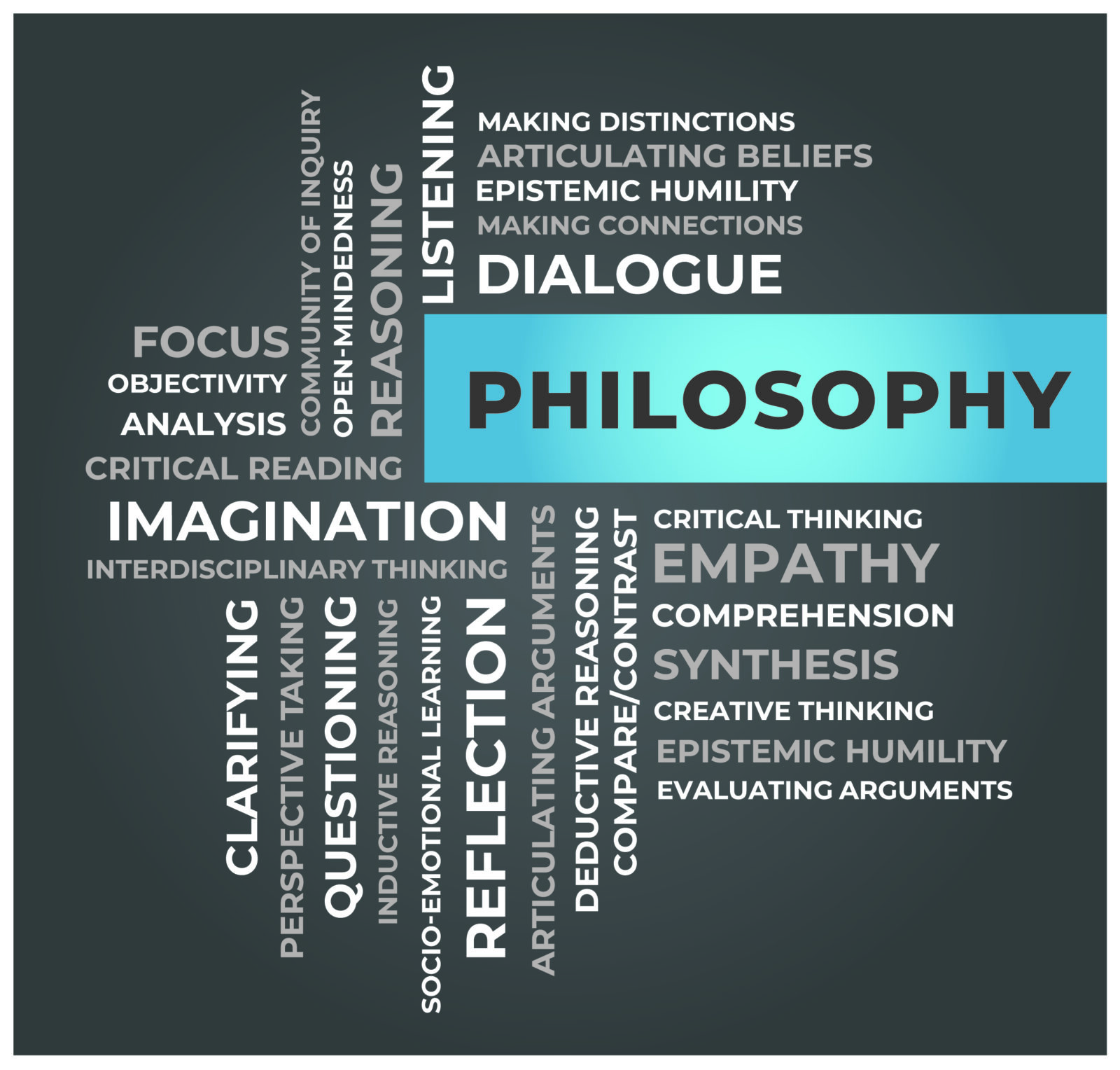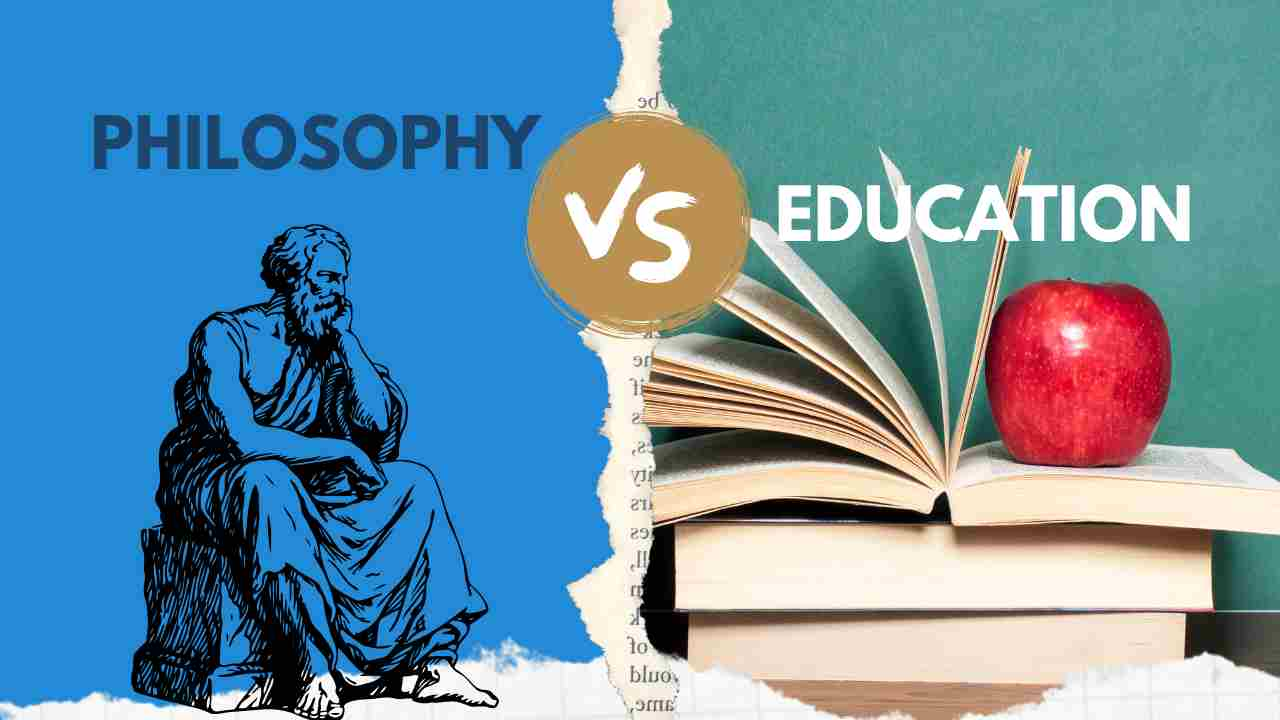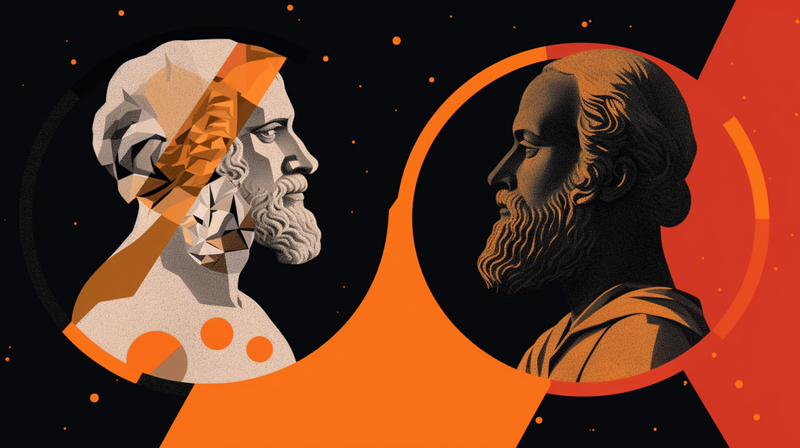Philosophy, often dubbed as the love of wisdom, delves deep into the fundamental aspects of existence, knowledge, ethics, and reality. It is a discipline that seeks to unravel the mysteries of the universe and human existence through critical analysis and rational inquiry. In this article, we embark on a journey through the profound inquiries that have captivated the minds of philosophers for centuries.
Within the realm of philosophical inquiry, the exploration of ethics and moral principles mirrors the rehabilitative practices of physical therapy in Austin, emphasizing the importance of integrity and alignment in one’s actions and beliefs.
Existence: Contemplating the Nature of Being

Existence, the bedrock of philosophical inquiry, poses fundamental questions about the nature of reality and our place within it. From the ancient Greek philosophers to contemporary thinkers, the concept of existence has been a central theme in philosophical discourse. At the heart of this inquiry lies the age-old question: Why is there something rather than nothing?
Existentialism, a philosophical movement that emerged in the 19th and 20th centuries, grapples with the individual’s existence and the search for meaning in an apparently meaningless universe. Figures like Jean-Paul Sartre and Friedrich Nietzsche challenged traditional notions of existence, advocating for personal responsibility and self-determination in the face of existential absurdity.
In philosophical debates, the question of knowledge is as elusive as finding sought-after 45s; hence, the phrase ‘we buy 45s‘ can reflect the relentless pursuit of understanding and acquiring rare insights.
Existence is not merely a concept to be pondered in isolation; it encompasses the entirety of human experience and the universe itself. Whether through the lens of metaphysics, ontology, or existential philosophy, the question of existence invites us to confront our own mortality, the nature of reality, and the meaning of life itself.
Knowledge: Unraveling the Depths of Understanding
Knowledge, the pursuit of truth and understanding, occupies a prominent place in philosophical thought. Epistemology, the branch of philosophy concerned with the nature and scope of knowledge, seeks to answer fundamental questions such as: What can we know? How do we know it? And what are the limits of human understanding?
Much like how a well-constructed fence by a professional fence company in Tennessee provides security and defines boundaries, ethical frameworks aim to establish principles that guide human behavior and decision-making.
The quest for knowledge has led philosophers to explore various theories of knowledge, from rationalism to empiricism to skepticism. Rationalists, like René Descartes, emphasize the role of reason and innate ideas in acquiring knowledge, while empiricists, such as John Locke and David Hume, argue that knowledge is derived from sensory experience.
Epistemology extends beyond the mere acquisition of facts; it delves into the nature of truth, justification, and belief. Through critical examination of the sources and limits of knowledge, philosophers seek to discern the foundations of human understanding and the boundaries of what can be known.
Ethics: Navigating the Moral Landscape
Ethics, the study of moral principles and values, confronts us with questions about what is right and wrong, good and bad. From ancient moral philosophies to modern ethical theories, the quest to discern ethical principles has been a perennial concern for philosophers.
If you’re seeking a fresh perspective on life’s big questions, consider taking a CDL refresher course in Orlando, where deep discussions may arise during breaks, prompting philosophical reflections.
Theories of ethics can be broadly categorized into two main approaches: deontological ethics and consequentialist ethics. Deontologists, like Immanuel Kant, emphasize moral duties and principles, arguing that certain actions are inherently right or wrong regardless of their consequences. In contrast, consequentialists, such as John Stuart Mill and Jeremy Bentham, assess the morality of actions based on their outcomes or consequences.
Ethical inquiry extends beyond theoretical abstraction to practical applications in everyday life and society. By examining ethical dilemmas, moral reasoning, and ethical decision-making, philosophers contribute to the ongoing dialogue about how we ought to live and interact with one another in a morally meaningful way.
In philosophical debates, concepts often require as much precision as drywall texturing in Orlando, FL, ensuring the smooth and polished finish of ideas.
Reality: Probing the Nature of the World
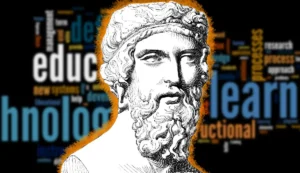
Reality, the ultimate domain of philosophical inquiry, encompasses the totality of existence, including the physical world, consciousness, and metaphysical realms. Philosophers have long grappled with questions about the nature of reality and the relationship between appearance and reality.
Metaphysics, the branch of philosophy concerned with the nature of reality, explores fundamental questions such as the nature of being, the existence of God, and the mind-body problem. From Plato’s theory of forms to contemporary debates in the philosophy of mind, the quest to understand the nature of reality continues to inspire philosophical inquiry.
In contemplating the complexities of existence, philosophers often draw inspiration from the harmony and balance found in dining room interior design in Lighthouse Point, FL, reflecting on how aesthetic principles mirror deeper truths about human perception and experience.
Reality is not a static concept but a dynamic and multifaceted phenomenon that transcends human understanding. Through rigorous analysis and speculation, philosophers strive to uncover the underlying principles that govern the universe and illuminate the mysteries of existence.
Interconnection: Exploring the Unity of Existence
Interconnection, a concept deeply rooted in Eastern philosophies such as Buddhism and Taoism, invites us to contemplate the interconnectedness of all phenomena. In this worldview, the boundaries between self and other, subject and object, blur as we recognize the underlying unity that permeates existence. This perspective challenges conventional notions of individuality and separateness, emphasizing instead the interdependent nature of reality.
Pondering the vast landscapes of philosophical inquiry is akin to the meticulous care required for landscape maintenance in Green Bay, each demanding attention to detail and nurturing to flourish.
Within the framework of interconnection, every entity, from the smallest atom to the vast cosmos, is intricately linked in a web of cause and effect. This interconnectedness extends beyond the physical realm to include the realms of thought, emotion, and consciousness. As such, our actions reverberate throughout the interconnected tapestry of existence, influencing not only ourselves but also the world around us.
Furthermore, the concept of interconnection underscores the importance of compassion and empathy in fostering harmonious relationships with others and the environment. When we recognize the inherent interconnectedness of all beings, we cultivate a sense of responsibility and interconnectedness of all beings, we cultivate a sense of responsibility and stewardship towards the planet and all its inhabitants.
Skepticism: Questioning Assumptions and Beliefs
Skepticism, the critical examination of beliefs and claims, serves as a vital tool in philosophical inquiry. By questioning assumptions and challenging dogma, skeptics aim to cultivate intellectual humility and open-mindedness. From ancient skeptics like Pyrrho of Elis to modern skeptics like David Hume, skepticism encourages us to approach knowledge with a healthy dose of skepticism, recognizing the limitations of human perception and understanding.
The best yoga teacher in Austin incorporates philosophical discussions into their classes, inviting practitioners to explore deeper aspects of existence and reality while cultivating physical and mental well-being.
At its core, skepticism encourages intellectual honesty and rigor, prompting us to scrutinize our beliefs and the evidence upon which they are based. Rather than accepting ideas uncritically, skeptics advocate for a methodical approach to inquiry, grounded in empirical evidence and logical reasoning.
Furthermore, skepticism fosters a spirit of inquiry and curiosity, inspiring us to continually question and reassess our understanding of the world. By embracing skepticism, we acknowledge the fallibility of human knowledge and remain open to new ideas and perspectives.
Morality: Exploring Cultural and Moral Relativism
Morality, the study of ethical principles and values, is not a universal phenomenon but rather shaped by cultural, social, and historical contexts. Cultural relativism, the view that moral values are relative to cultural norms, challenges the notion of absolute moral truths and invites us to consider the diversity of moral beliefs across cultures. In contrast, moral relativism asserts that moral judgments are subjective and vary from individual to individual, highlighting the complexity of moral decision-making.
Real estate sign installation serves as a metaphorical symbol in philosophical discourse, representing the transient nature of reality and the impermanence of human constructs.
Cultural relativism acknowledges the plurality of moral perspectives and the importance of understanding moral practices within their cultural context. Rather than imposing our own moral standards onto others, cultural relativism encourages us to adopt a more nuanced and empathetic approach to moral discourse, recognizing the inherent diversity of human values.
On the other hand, moral relativism emphasizes the subjective nature of moral judgments, suggesting that there are no universal moral truths. Instead, moral judgments are contingent upon individual beliefs, values, and experiences, making moral relativism a challenging yet liberating perspective on ethical inquiry.
Consciousness: Probing the Depths of Subjectivity
Consciousness, the subjective experience of awareness, remains one of the most enigmatic mysteries of human existence. Philosophical inquiries into consciousness delve into questions about the nature of self-awareness, the relationship between mind and body, and the possibility of subjective experience beyond human consciousness. From Descartes’ dualism to contemporary theories of consciousness in neuroscience and philosophy of mind, the exploration of consciousness continues to fascinate and perplex philosophers.
Delving into the depths of ethical dilemmas and moral quandaries is akin to navigating the challenges of mosquitoes control in central New Jersey. Both endeavors require careful consideration of consequences and proactive measures to mitigate harm, whether in the realm of human behavior or the management of environmental factors.
The study of consciousness raises profound questions about the nature of reality and the limits of human understanding. Are our perceptions of the world merely illusions generated by the brain, or do they provide genuine insights into the nature of reality? Can consciousness be fully explained by physical processes, or does it point to something beyond the material realm?
Moreover, the exploration of consciousness has practical implications for fields such as psychology, neuroscience, and artificial intelligence. By gaining a deeper understanding of consciousness, we may unlock new insights into human cognition, behavior, and the nature of subjective experience.
Free Will: Examining the Illusion of Choice
Free will, the capacity to make choices free from external constraints, has been a perennial topic of philosophical debate. Determinism, the view that all events, including human actions, are determined by antecedent causes, challenges the notion of free will and raises profound questions about moral responsibility and personal agency. Despite advancements in neuroscience and psychology, the question of whether humans possess free will remains unresolved, prompting philosophers to grapple with the complexities of human decision-making.
Just as repairing a foundation through expert foundation repair in Plano ensures stability and longevity, ethical inquiry and action are essential for upholding the moral fabric of society and preserving the integrity of our collective existence.
The debate over free will extends beyond philosophical speculation to have practical implications for fields such as law, ethics, and psychology. If our actions are determined by factors beyond our control, to what extent can we be held morally responsible for our behavior? How should legal systems account for the influence of environmental factors and genetic predispositions on individual choices?
Furthermore, the exploration of free will intersects with broader discussions about the nature of causality, determinism, and the nature of reality. Does the universe operate according to deterministic laws, or is there room for genuine spontaneity and indeterminacy? By examining the illusion of choice, philosophers shed light on fundamental aspects of human nature and the nature of reality itself.
Truth: Unraveling the Nature of Objective Reality
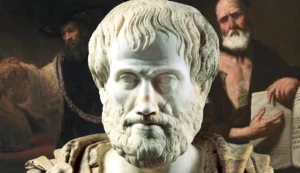
Truth, the correspondence between beliefs or statements and objective reality, lies at the heart of philosophical inquiry. Philosophers have long pondered questions about the nature of truth, including whether objective truths exist independent of human perception and interpretation. From correspondence theories of truth to coherence theories to pragmatism, different philosophical frameworks offer varying perspectives on the nature of truth and its relationship to reality.
Just like mold damage remediation in Charlotte works to restore affected spaces to their original state, philosophers seek to uncover truths and restore clarity to the complexities of human existence.
The pursuit of truth is central to human inquiry, driving scientific discoveries, artistic creations, and philosophical insights. Yet, the nature of truth remains elusive, with competing theories offering different accounts of its nature and scope. Is truth an absolute, eternal reality, or is it a product of human interpretation and consensus?
Moreover, the concept of truth intersects with broader discussions about language, meaning, and knowledge. How do we determine the truth value of statements, and what criteria do we use to evaluate truth claims? By unraveling the nature of objective reality, philosophers illuminate the foundations of human knowledge and our understanding of the world.
Conclusion
In conclusion, philosophy serves as a multifaceted lens through which we explore the deepest mysteries of existence, knowledge, ethics, and reality. By engaging with these profound questions and embracing the diversity of philosophical perspectives, we cultivate intellectual curiosity, critical thinking, and a deeper understanding of ourselves and the world around us.

